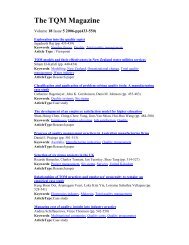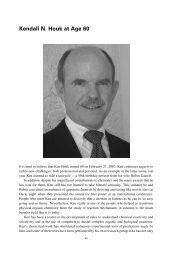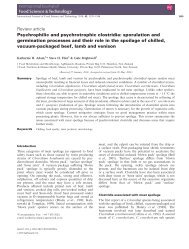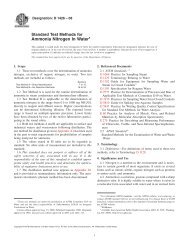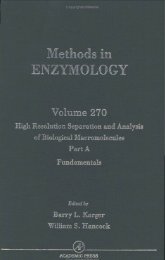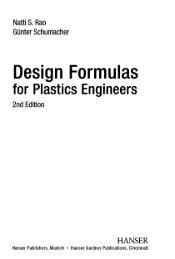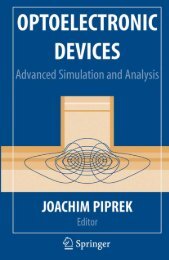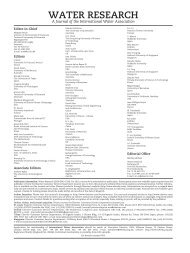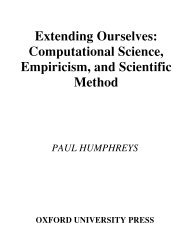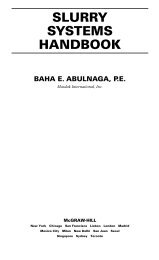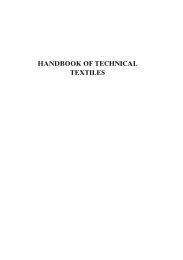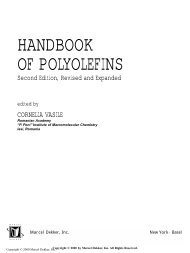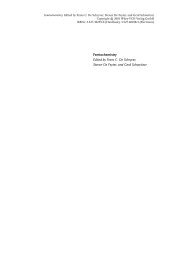Bad Astronomy: Misconceptions and Misuses Revealed, from ...
Bad Astronomy: Misconceptions and Misuses Revealed, from ...
Bad Astronomy: Misconceptions and Misuses Revealed, from ...
You also want an ePaper? Increase the reach of your titles
YUMPU automatically turns print PDFs into web optimized ePapers that Google loves.
120 SKIES AT NIGHT ARE BIG AND BRIGHT<br />
“The eyes are just barely good enough at rejecting [damaging]<br />
light,” Young told me, because the pupil in the eye constricts dramatically<br />
when exposed to bright light, cutting off the vast majority<br />
of light entering the eye. Most people’s retinae don’t get overexposed<br />
when they glance at the Sun. Young quotes <strong>from</strong> a paper, “Chorioretinal<br />
Temperature Increases <strong>from</strong> Solar Observation,” published<br />
in the Bulletin of Mathematical Biophysics (vol. 33 [1971]: 1–17),<br />
in which the authors claim that under normal circumstances, the<br />
constriction of the eye’s pupil prevents too much light <strong>from</strong> the<br />
Sun <strong>from</strong> actually damaging the retina. There may be a slight (4 degrees<br />
Celsius) temperature rise in the tissue, but this is most likely<br />
not enough to cause permanent damage.<br />
However, natural variations in the amount of pupil constriction<br />
between different people means that some might still be prone<br />
to retinal damage this way. These people make up the majority of<br />
solar retinopathy patients—people who suffer eye damage <strong>from</strong><br />
looking at the Sun.<br />
According to physicians at the Moorsfields Eye Hospital in London,<br />
Engl<strong>and</strong>, observing the Sun can cause damage to the eye but<br />
not total blindness. On their web site [http://www.moorfields.org.uk/<br />
ef-solret.html], they report that half their patients with eye injury<br />
recover completely, only 10 percent suffer permanent vision loss,<br />
<strong>and</strong>, most interestingly, never has anyone had a total loss of vision<br />
<strong>from</strong> solar retinopathy.<br />
So there is damage, <strong>and</strong> sometimes it can be severe, but most<br />
people recover, <strong>and</strong> no one has ever become totally blind by looking<br />
at the Sun. However, due to the natural variation in pupil constriction<br />
<strong>from</strong> person to person, I think I still need to stress that<br />
while it very well may be safe (or at least not very dangerous) to<br />
glance at the Sun, staring at it may still cause damage. The damage<br />
is most likely minimal, but why take chances? Try not to stare at<br />
the Sun, <strong>and</strong> try to minimize any glances at it. You might be part<br />
of the group that will suffer some injury <strong>from</strong> it.<br />
So, if the full Sun is not likely to be dangerous, why should<br />
viewing a solar eclipse cause eye injury? During an eclipse most or<br />
all of the Sun is blocked by the Moon. However, think about what<br />
happens inside your eye when you view an eclipse. During a total



